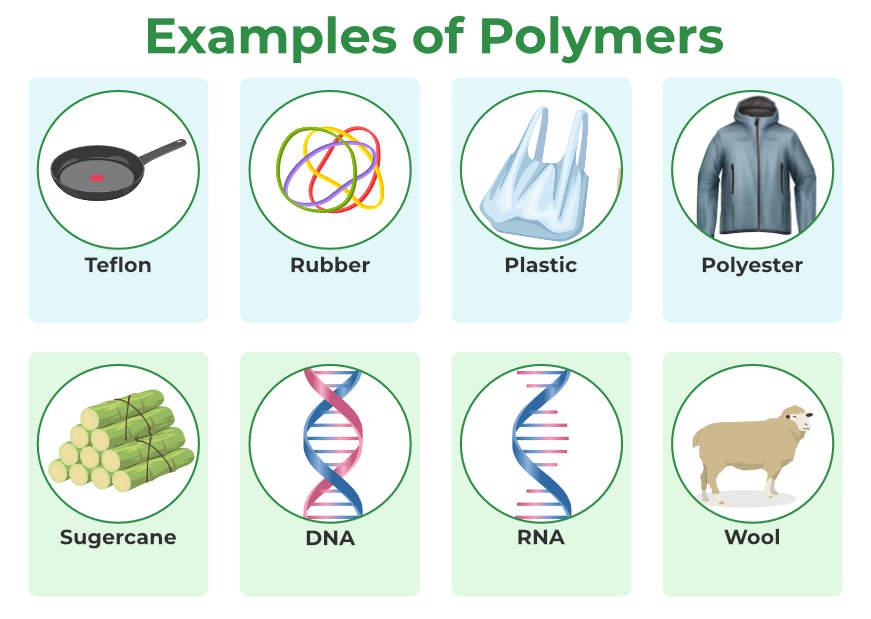Understanding Polymers: The Scientific Research Behind Versatile Materials
Understanding Polymers: The Scientific Research Behind Versatile Materials
Blog Article
From Manufacturing to Medication: How Polymers Revolutionize Different Sectors With Their Benefits
Polymers, with their diverse chemical structures and customizable buildings, have emerged as critical parts throughout a range of sectors. From enhancing manufacturing processes to enabling groundbreaking developments in medicine, the effect of polymers reverberates far and wide.
Adaptability in Production
With their diverse buildings and flexibility, polymers have actually dramatically boosted the production processes across various industries. The versatility of polymers in manufacturing is credited to their capacity to be built right into complicated shapes, their light-weight nature, durability, and resistance to corrosion. These properties make polymers a suitable selection for a vast array of applications, from vehicle and aerospace industries to medical care and electronics.
In the auto industry, polymers are thoroughly utilized in making components such as bumpers, dashboards, and indoor trims because of their light-weight nature, which helps enhance gas effectiveness. Additionally, their durability and resistance to rust make them suitable for outside applications in construction and facilities tasks. In the healthcare market, polymers play a vital duty in creating clinical devices, devices, and packaging materials because of their biocompatibility and sanitation capabilities.

Improved Product Efficiency
Significant innovations in product efficiency have been accomplished through the combination of polymers in numerous markets. Polymers add considerably to enhancing product efficiency due to their special residential or commercial properties and convenience. In the automobile market, making use of polymers in making components such as bumpers and indoor components has caused lighter lorries, improved fuel performance, and increased longevity. The aerospace sector benefits from polymers in the production of light-weight yet solid products for aircraft, leading to improved efficiency and lowered maintenance costs - Polymers.
Moreover, in the electronic devices sector, polymers play an important function in enhancing the efficiency of gadgets via their insulating residential properties, influence resistance, and adaptability. This permits the growth of smaller sized, extra reliable digital items that are additionally a lot more long lasting. In the clinical field, polymers are utilized to create sophisticated implants and medication delivery systems that use enhanced biocompatibility and targeted treatment, ultimately improving patient outcomes.
Innovations in Clinical Tools
The application of polymers in the medical area has led to groundbreaking innovations in the development of advanced clinical gadgets. Polymers have transformed the layout and performance of clinical devices by using unique properties such as biocompatibility, adaptability, and resilience.
Polymer compounds have likewise made it possible for the development of lighter and extra comfortable prosthetics, improving the top quality of life for amputees. Polymers with antimicrobial homes are being integrated right into medical gadgets to stop infections and improve client end results. The growth of advanced medication distribution systems using polymer-based materials has reinvented the therapy of numerous diseases by guaranteeing targeted and managed launch of drugs.
Medication Distribution Advancements
In the realm of pharmaceutical developments, novel medication shipment systems are improving the landscape of clinical therapy. These improvements intend to enhance the effectiveness and precision of medication administration while decreasing negative effects and improving patient compliance. One of the key breakthroughs in drug shipment is the use of polymer-based providers. Polymers use a flexible platform for developing delivery systems that can control medicine launch prices, target particular tissues or cells, and safeguard the medication from degradation in the body.
Nanotechnology has also played a critical role in medicine shipment advancements by making it possible for the growth of nano-sized medication carriers. These nanocarriers can enhance medicine solubility, extend flow time in the body, useful content and improve cellular uptake, site link eventually resulting in improved healing outcomes. In addition, improvements in individualized medicine have actually resulted in the modification of medication distribution systems based on specific patient features, such as genetic make-up or disease account.

Lasting Solutions
Having laid the structure for developments in medicine shipment systems, the focus currently shifts in the direction of exploring lasting solutions within the world of polymer-based carriers. Sustainability has actually become a critical element of modern markets, including health care, driving the demand for environment-friendly choices. Polymers use an appealing method for attending to sustainability obstacles due to their adaptability, biodegradability, and recyclability.
One key element where polymers add to sustainability is in minimizing the ecological impact of clinical waste. Eco-friendly polymers can be designed to break down normally over time, reducing the build-up of non-degradable products in landfills. Additionally, the recyclability of specific polymers enables the development of closed-loop systems that promote the reuse of resources, better lowering waste production.
Additionally, using eco-friendly resources for polymer production, such as plant-based sources like corn or sugarcane, presents a chance to reduce dependence on nonrenewable fuel sources and reduced carbon emissions. By taking advantage of the possibility of polymers as lasting remedies, industries can move towards more eco-friendly methods official statement without compromising performance or efficiency.
Final Thought
Finally, polymers have significantly transformed various industries, including manufacturing and medication, as a result of their convenience, boosted item performance, and ingenious applications in medical devices and drug distribution systems - Polymers. These innovations have actually caused the advancement of sustainable solutions that profit both sectors and the setting. Polymers remain to play a crucial duty in driving technology and progression across different fields, showcasing their relevance in contemporary society
Report this page